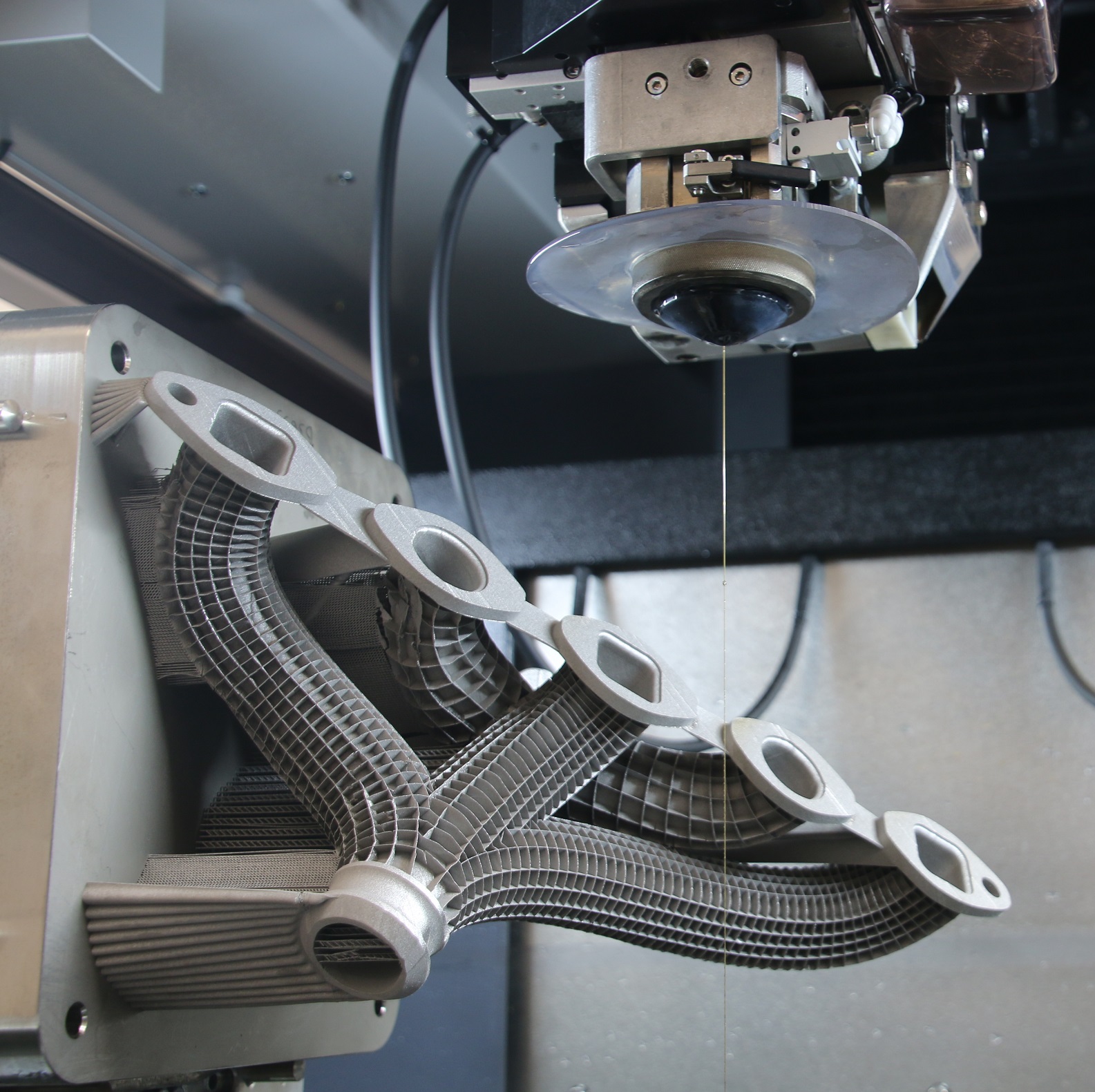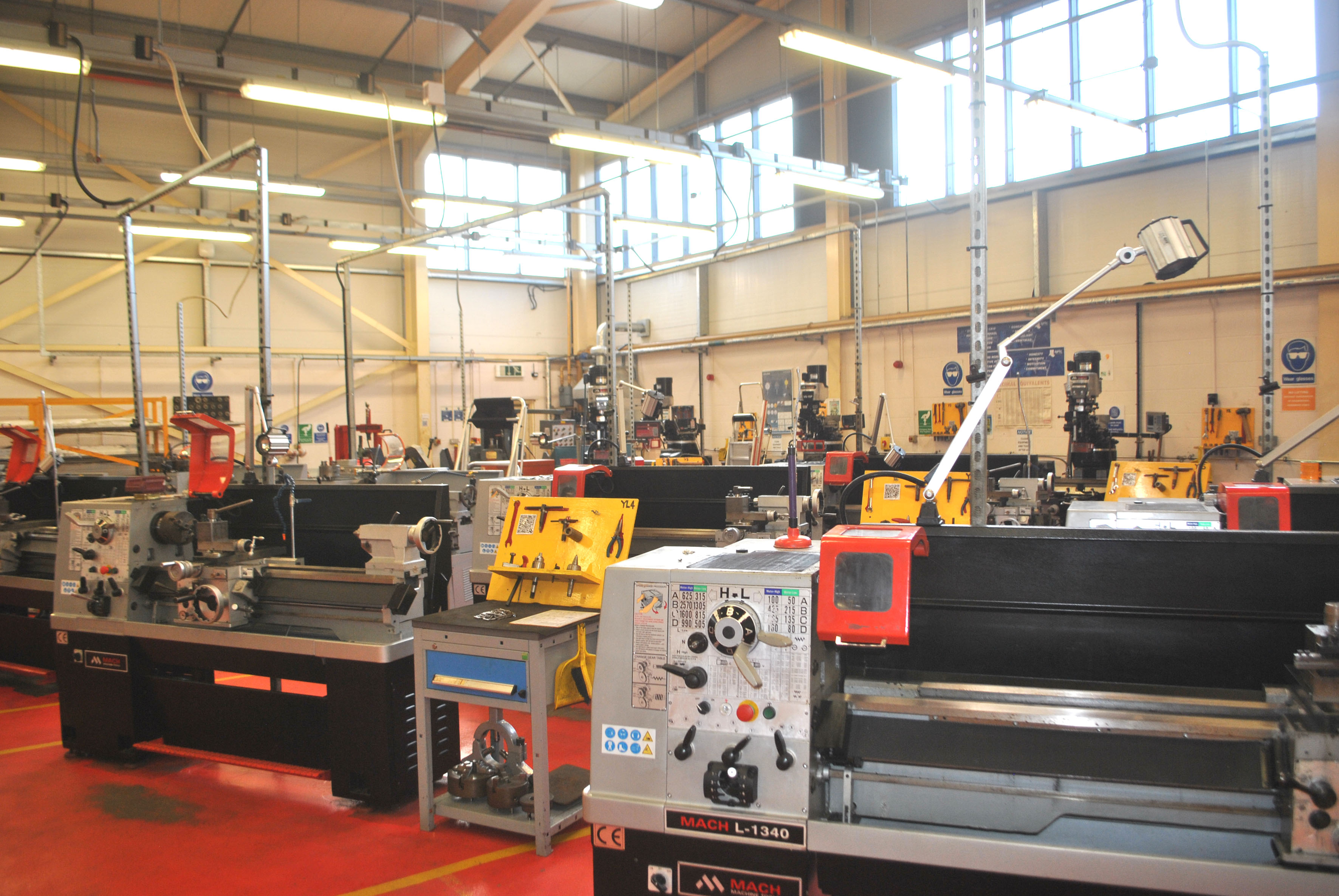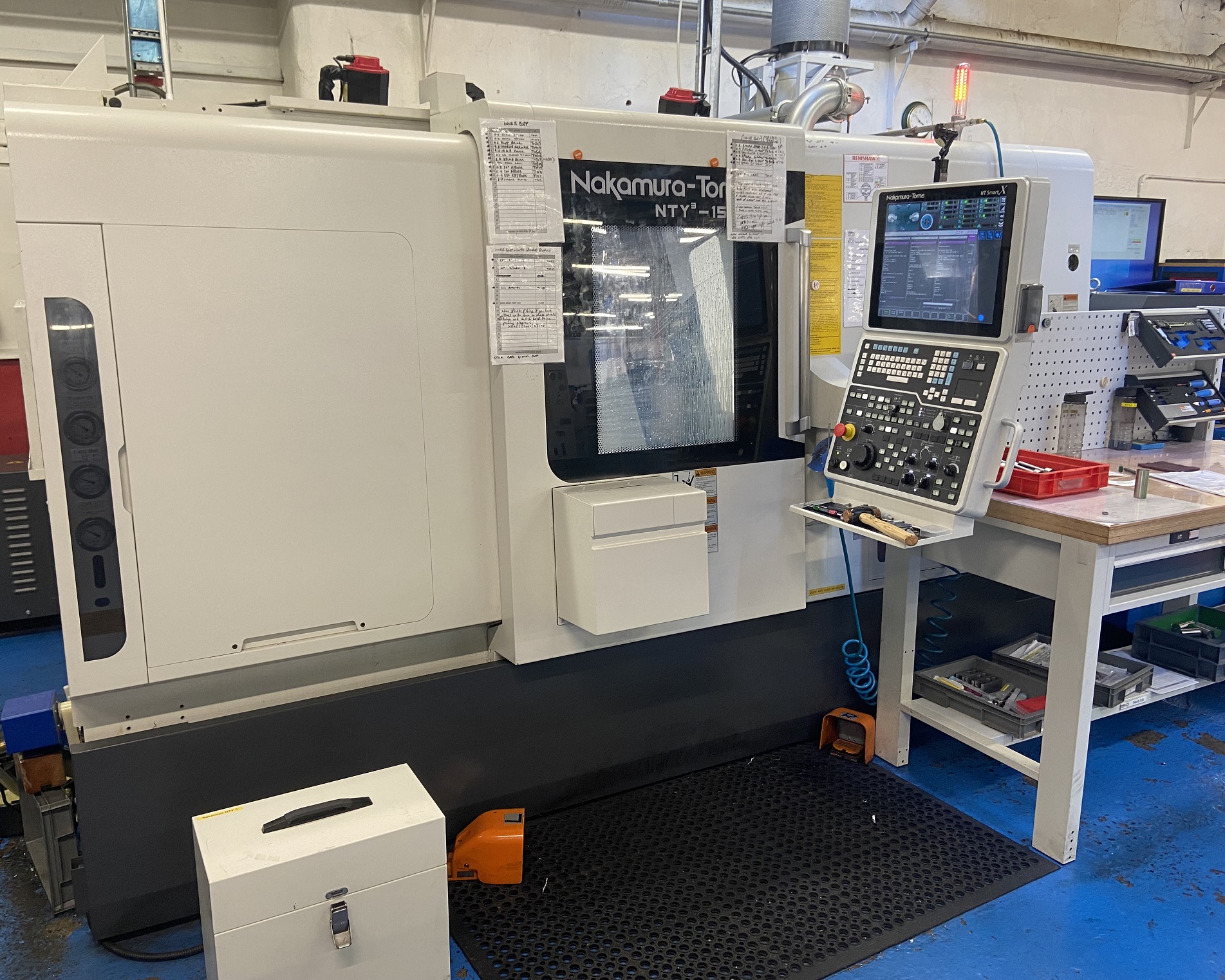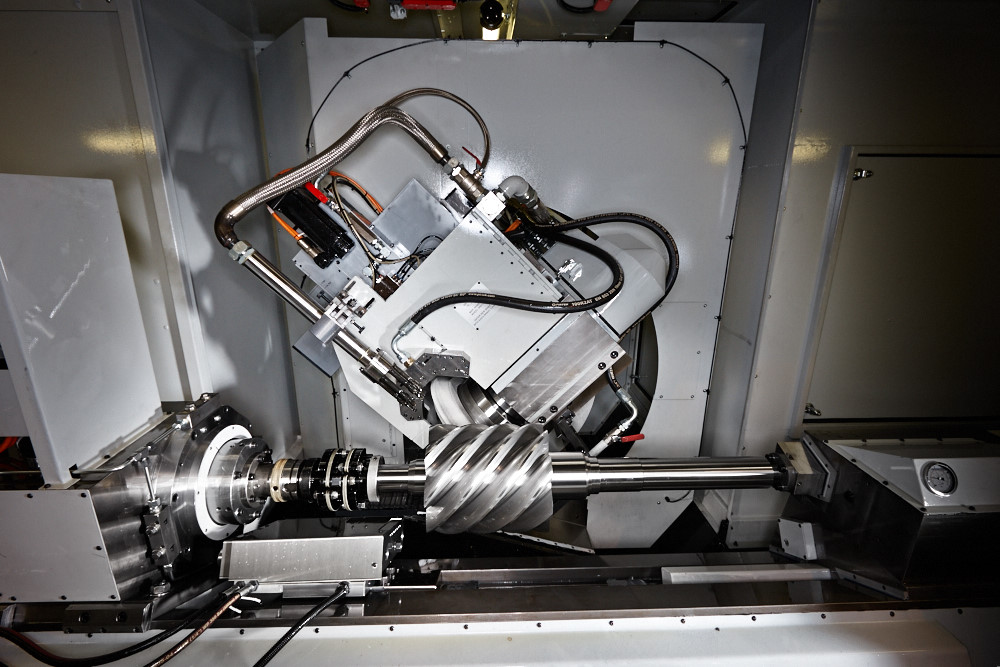An integral element of NPTC Group of Colleges’ investment programme to upgrade the capacity and capabilities of its two engineering departments (at Neath College and Newtown College) has been realised with a number of recent investments in new, high-performance manual machines from MACH Machine Tools.
MACH Machine Tools, part of the Vigilance Group, has, since 2012, supplied NPTC Group of Colleges (formerly Neath Port Talbot College and Coleg Powys) with over 30 new manual machines. The machines, comprising 17 MACH VS-1 and VS-1SP turret-type milling machines, 15 MACH L-1340 manual lathes and four MACH SB30 geared-head drilling machines (as well as a number of MACH double-ended grinders, MACH bandsaws and MACH linishing machines), have been delivered in phases, and installed over the 10-year period.
The latest arrivals, a significant investment package featuring seven MACH VS-1SP mills, nine MACH L-1340 lathes and two MACH SB30 drills, were installed at Neath and Newtown Campus facilities in March 2021. These machines deliver practical, relevant and Industry-required machining knowledge and skills to the colleges’ full-time and part-time engineering students. Notably, the investment also reflects NPTC’s commitment to create world-class engineering workshops at both campuses, and to help it raise its profile and further differentiate its course provision and learning pathways with key audiences that include young people, local and regional employers and the wider community.
While the 30+ machine tool investment is significant for NPTC and one that certainly reinforces its ‘Centre of Engineering Excellence’ status, it is also equally significant for MACH Machine Tools, and supports the company’s position as a proven technology provider to schools, colleges and universities.
The two engineering workshops at Neath and Newtown Colleges, through their recent MACH machine tool acquisitions, have become best-in-class reference sites for the company, where its considerable range of high-performance manual machines can be showcased to large and small engineering companies and component manufacturers in Wales.
Says David Andrew, CEO, Vigilance Group: “NPTC Group of Colleges is one of the largest further education providers in Wales. The engineering course provision – ranging from Level 1, 2 and 3 mechanical engineering full-time courses, through to its part-time HNC programmes of study – is popular with young people and adults alike. It is also well respected and highly regarded by local and regional employers who rely on NPTC to deliver the off-the-job training elements of their respective apprenticeship programmes.”
There is, and always has been, much debate in the UK – at national, regional and local levels – about making careers in engineering, and manufacturing in general, more attractive and appealing to young people. Running parallel to these discussions is a recognition, made more acute by the impact and effects of the pandemic – and by the ramifications of Brexit – that UK manufacturing needs to become more resilient, more productive and more competitive. However, a major stumbling block to achieving these objectives remains the perennial skills shortage issue, experienced by many, if not most, manufacturers and engineering companies in particular.
Explains Steve Welch, senior engineering lecturer Neath & Port Talbot College (NPTC Group): “We operate in a competitive environment where young people have a number of choices open to them at 16, 17, 18 and beyond. We clearly want, and need, to be attracting top talent into manufacturing and engineering on a macro level and, because we are an integral and important element of the education and training supply chain, we need to attract highly motivated and dedicated students on to our courses.
“It’s the same situation for local engineering and manufacturing companies in the region who, to ensure their long-term growth and prosperity, need access and the ability to recruit skilled staff,” he continues. “Critical to the decisions of young people, students and manufacturing companies, are the training facilities we have at our disposal.”
Upgrading the engineering workshop resources and capabilities at its Neath and Newtown college campus facilities is a never-ending process: a journey as opposed to a destination, so to speak. NPTC began its upgrade programme in 2012 and it has gathered pace ever since.
“We are committed to continuous improvement and have robust and proven procurement systems and processes in place, that ensure we meet our new technology investment objectives,” says Welch.
NPTC’s most recent investment package was made following the completion of an in-depth process where a number of machine tool suppliers were invited to tender for the new machine tool supply contract. MACH Machine Tools’ tender submission was successful for a number of reasons, including: quality, price and availability; the level of service and support available, including delivery and installation; and the strong and established partnership that exists between NPTC and MACH Machine Tools.
Explains Welch: “We have a good relationship with MACH Machine Tools that stretches back 10 years. With the latest tender, MACH Machine Tools submitted a competitive and favourable tender that represented real value and included a number of advantages that the other suppliers could not match.
“Continuing the investment in MACH machine tools means that all students have access to, and are taught on, the same, high-performance machines – a real benefit from both a teaching and learning perspective,” he continues. “In summary, MACH Machine Tools was able to, deliver, install and commission the new machine tools quickly and efficiently. And, it was this straightforward, efficient and seamless process from a single source supplier that really helped seal the deal.”
MACH VS-1 and VS-1SP turret-type milling machines have a small footprint and are equipped with large-capacity worktables and powerful spindles. They are built to exacting quality standards and deliver high accuracies, fast processing speeds, reliability and value, says MACH Machine Tools.
The MACH L-1340 lathes at the NPTC Group are compact machines equipped with quick-change tool posts and tailstocks, and feature anti-vibration and stress relieved beds, backlash eliminators and two-axis DROs. MACH SB30 geared-head drills feature height adjustable tables, powerful spindles and are renowned for their smooth and quit operation, reports the company.
Concludes Welch: “We are delighted with our latest MACH machines. They look the part and, as expected, they do the business too. Our relationship with MACH Machine Tools continues to go from strength to strength. Not only has the company supplied us with class-leading, competitively-priced equipment, it has also become actively involved in the wider operation of our engineering departments – supplying us with MACH-branded workwear for students and sponsoring our apprentice awards programme. It’s a true partnership.”
For further information www.machmt.co.uk



















